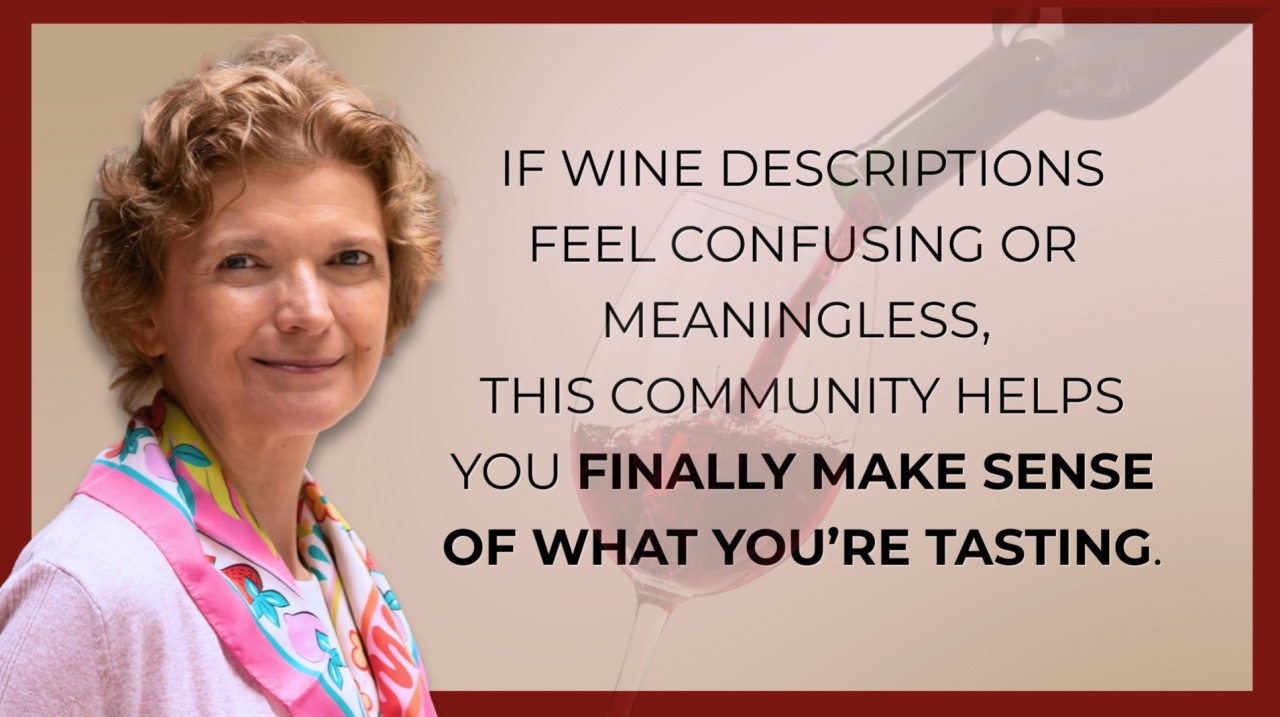The four factors that can turn you ON or OFF a wine style

One positive or negative experience with a specific wine style often determines if you’re going to love it or leave it
Published April 28, 2021
I was the guest at a virtual wine tasting last Wednesday night. My role was to act as the "wine tasting expert" to help the people attending the event with any questions.
We tasted three wines, one of them being a sauvignon blanc from Mendocino County, California.

Shannon raised her hand at some point and said:
I've never liked white wine. I don't know why. Is it a brainy thing or what?
Oh, Shannon, I was so happy to take on that question.
But first, I needed to know more about what you didn't like in white wines. Shannon had a hard time explaining what it was. She made faces, though, suggesting she must have had bad experiences in the past.
Did you know?
Having a bad experience is the number one reason we don't like particular foods or beverages?
Take me, for example. I'm not too fond of Tequila. The smell of it makes me nauseous. Why?
Because, once, I was sick as hell after overindulging in too many margaritas at a student party. Can you relate?
So, yes, Shannon, it is a brainy thing. If you don't like white wine, it's because your brain associates white wine with a bad experience. The memory of it could be a physical or emotional discomfort. And by the way, the wine might not be the culprit. Something else might have triggered the pain. But your brain associated it with the wine.
That’s why a bad experience should not deter us from being curious and exploring other wine styles. So I encouraged Shannon to experiment with different types of white wines. There is a wide selection out there, from the neutral flavors to the heavily toasted Chardonnay styles. Events like the one we both attended on Wednesday are great occasions to experiment. She might soon figure out a few enjoyable white wines.
Three other factors can affect your love or disgust for wine.
1-Your childhood.
I am sure you didn't drink wine as a child. Yet, what you ate and drank became the types of tastes, aromas, and textures you are now familiar with. These experiences determine what you like or hate today. The flavor intensities you experienced then helped you build a mental scale of the sensation strengths.
For example, I grew up in a household where the strongest condiment was Dijon mustard. Compared to a green salsa, the mustard spice heat is pretty mild, but it was pretty intense to me. Therefore, a mild Mexican dish is always too hot for me, but I managed because I love the other flavors.
2- Your social network.
Shannon may not like white wines because she started to drink red wines with her friends, and it was the thing to do. Most Millennials started to drink reds rather than sweet wines like their parents did.
Your social network influences your buying and consumption choices. The more you drink a wine style and have a positive experience, the more you like it.
3-Your genes.
Although we have 99.8% of our genes in common, they may not light up in the same way. There is huge variability in our ability to detect aromas and tastes. Some people need a tiny bit of stimulation to detect a taste or smell, and others need much more. Shannon may be hypersensitive to a sensation typically present in white wine. This sensation is so unpleasant that she doesn't want to drink white wine anymore. It's a brainy thing!
Our preference for specific wine styles evolves as we age and as we experiment in the world of wine. We start to have our favorites and fewer favorites.
Back to Shannon's question.
She had a hard time explaining why or what she didn't like in white wine.
Her disgust (based on her grimaces) was genuine and could have come from:
- a previous bad experience with white wine
- her childhood and the types of flavors she grew up with and learned to like and dislike
- her social network influencing her to start drinking reds rather than whites.
- her genes and sensitivity to specific compounds.
And for all these reasons, Shannon learned to associate white wines with dislike; thus, it's a brainy thing!
So, next time you drink a wine you don't like.
Pause and try to figure out what taste or aroma is unpleasant.
Shannon's question demonstrates how important it's for you to describe wine taste and aroma with confidence. Training your senses is critical to identify the wine styles you enjoy or would instead not drink. Knowing how to express these nuances helps you better communicate the wine styles you'd like to drink.
My question to you:
On a scale from 1 (I have no words) to 10 (I am fluent), how would you rate your ability to describe wine aroma and taste?
Drop your score below, anonymous answers permitted.
Cheers!
Categories: : wine style, Lifestyle
Download your Free Resources

Unlock your senses | The Sensory Approach to Wine Tasting
Templates, audio guide to carry out a sensory training

Join Curious Palates, a FREE Community and open training space to develop your wine palate with sensory training

Isabelle Lesschaeve, PhD
Blog author, Wine Sensory Scientist and Wine Tasting Coach
Internationally renowned wine sensory scientist, Isabelle demystifies wine tasting and helps serious wine lovers improve their senses of smell and taste to sharpen their tasting skills and tasting notes.
InnoVinum LLC is a participant in the Amazon Services LLC Associates Program, an affiliate advertising program designed to provide means for sites to earn advertising fees through advertising and linking to amazon.com.
 Isabelle Lesschaeve
Isabelle Lesschaeve 